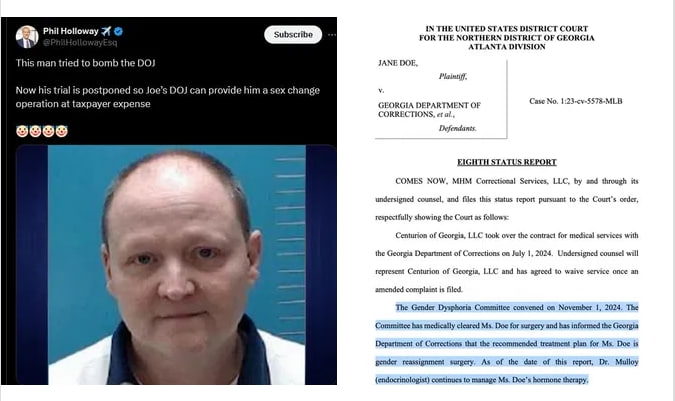EUO is a Material Condition Precedent
Claim Properly Denied for Refusal to Testify at EUO
Post 4936
Read the full article at
https://www.linkedin.com/pulse/euo-material-condition-precedent-barry-zalma-esq-cfe-exccc, see the full video at and at and at
https://zalma.com/blog plus more than 4900 posts.
See the full video at and at
Erin Hughes appealed from the grant of summary judgment in favor of defendant and respondent Farmers Insurance Exchange (Farmers) on her causes of action for breach of contract and bad faith arising after Farmers’ denial of Hughes’s property insurance claim because she refused to testify at a second examination under oath (EUO).
In Erin Hughes v. Farmers Insurance Exchange, B331168, California Court of Appeals (November 8, 2024) the condition precedent was enforced.
FACTUAL BACKGROUND
Hughes is the owner of real property in Malibu (the property). In December 2020, Hughes obtained an insurance policy to cover the property for fire loss through the California FAIR Plan Association (FAIR Plan). Also in December 2020, Hughes obtained a homeowner’s insurance policy from Farmers to cover perils other than fire, including losses due to theft (the policy).
One month later, in January 2021, the property sustained significant fire damage. Hughes contacted Farmers, which advised her that fire loss was not covered by her Farmers policy, and she would have to pursue any such claim through her FAIR Plan policy. Unhappy, on January 21, 2021, Hughes tendered a theft claim under the Farmers policy, asserting in excess of $2 million worth of personal property was stolen from the property.
Farmers ultimately denied the claim on January 5, 2022, on the ground that Hughes failed to cooperate with Farmers’ investigation, including by failing to participate in a second examination under oath as required by the policy.
Hughes’s Complaint Against Farmers
One week after the denial of her claim, Hughes sued Farmers and alleged Farmers demanded “duplicative, onerous and/or unnecessary” documentation of stolen items. Further, she alleged Farmers subjected her to “two confrontational, accusatory and grueling examinations under oath.” Hughes alleged her second examination under oath had been “suspended due to [her] medical condition,” but Farmers disregarded her condition and demanded a third examination.
Farmers’ Motion for Summary Judgment
Farmers moved for summary judgment contending it properly denied Hughes’s theft claim based on her failure to cooperate with Farmers’ investigation of her claim as well as her material misrepresentations in obtaining the Farmers policy.
In May 2021, as part of Farmers’ theft claim investigation, Hughes participated in an examination under oath. During the examination, Hughes’s counsel informed the Farmers attorney he had just sent more than 40 additional receipts that the attorney would be receiving shortly. Recognizing they would not have time to go through the new items that day and the examination would need to continue on a future date, the Farmers attorney proposed “continu[ing] to work with one another to identify what’s missing.” In response, Hughes and her counsel agreed, with Hughes stating she would be happy to get “every single thing that you need and I’ll send it to my attorney right away.”
In October 2021, a second session of the examination under oath was held regarding documentation Hughes had produced during and after the first session. Hughes appeared remotely with counsel and before any questions were asked of her, she objected to a further examination.
Hughes accused the Farmers attorney of interrogating her “like a fucking criminal” and stated, “if you want to take my deposition . . . you are going to take a second deposition in court, and that’s going to be a formal deposition.” Hughes’s remote connection then cut out, and her counsel indicated she would not proceed with the examination.
Farmers informed Hughes that it was denying coverage based on her failure to cooperate with Farmers’ investigation and particularly her refusal to proceed with the second examination under oath.
Trial Court’s Grant of Summary Judgment and Denial of Hughes’s Continuance Request and Motion for New Trial
The trial court granted summary judgment in favor of Farmers. Noting an insurer has “an absolute right” to require the insured to submit to an examination under oath “as long as the insurer exercises the right reasonably,” the court determined Hughes had not shown Farmers acted unreasonably. The court concluded summary judgment was appropriate “based solely on failure to cooperate.”
DISCUSSION
The trial court properly concluded there was no genuine dispute that Hughes’s failure to participate in an examination under oath constituted a material breach of the policy; accordingly, Farmers was excused from having to pay on Hughes’s claim. The right to require the insured to submit to an examination under oath concerning all proper subjects of inquiry is reasonable as a matter of law.
An insured’s compliance with a policy requirement to submit to an examination under oath is a prerequisite to the right to receive benefits under the policy.
Because Hughes refused to cooperate with Farmers’ investigation by participating in and completing her examination under oath, she cannot establish her own performance under the policy.
Breach of Implied Covenant Claim
The implied covenant of good faith and fair dealing is based on general contract law and the long-standing rule that neither party will do anything which will injure the right of the other to receive the benefits of the agreement. Hughes’s claim for bad faith fails as a matter of law.
ZALMA OPINION
Wildfires tend to destroy everything. That is why insurers are unwilling to write fire insurance in Malibu and other areas prone to wildfires and obtain fire insurance from the Fair Plan, an organization designed to cover uninsurable risks. Because of the destruction done by a wildfire or a dwelling fire a $2 million dollar theft loss after a fire is questionable and a good reason to take a thorough EUO. Farmers tried to do so and Hughes refused without reason after admitting she left open much investigation elements at the agreed conclusion of the first session and an agreement to a second only to refuse.
(c) 2024 Barry Zalma & ClaimSchool, Inc.
Please tell your friends and colleagues about this blog and the videos and let them subscribe to the blog and the videos.
Subscribe to my substack at
https://barryzalma.substack.com/subscribe
Go to X @bzalma; Go to Newsbreak.com
https://www.newsbreak.com/@c/1653419?s=01; Go to Barry Zalma videos at Rumble.com at
https://rumble.com/account/content?type=all; Go to Barry Zalma on YouTube-
https://www.youtube.com/channel/UCysiZklEtxZsSF9DfC0Expg
EUO is a Material Condition Precedent
Claim Properly Denied for Refusal to Testify at EUO
Post 4936
Read the full article at https://www.linkedin.com/pulse/euo-material-condition-precedent-barry-zalma-esq-cfe-exccc, see the full video at and at and at https://zalma.com/blog plus more than 4900 posts.
See the full video at and at
Erin Hughes appealed from the grant of summary judgment in favor of defendant and respondent Farmers Insurance Exchange (Farmers) on her causes of action for breach of contract and bad faith arising after Farmers’ denial of Hughes’s property insurance claim because she refused to testify at a second examination under oath (EUO).
In Erin Hughes v. Farmers Insurance Exchange, B331168, California Court of Appeals (November 8, 2024) the condition precedent was enforced.
FACTUAL BACKGROUND
Hughes is the owner of real property in Malibu (the property). In December 2020, Hughes obtained an insurance policy to cover the property for fire loss through the California FAIR Plan Association (FAIR Plan). Also in December 2020, Hughes obtained a homeowner’s insurance policy from Farmers to cover perils other than fire, including losses due to theft (the policy).
One month later, in January 2021, the property sustained significant fire damage. Hughes contacted Farmers, which advised her that fire loss was not covered by her Farmers policy, and she would have to pursue any such claim through her FAIR Plan policy. Unhappy, on January 21, 2021, Hughes tendered a theft claim under the Farmers policy, asserting in excess of $2 million worth of personal property was stolen from the property.
Farmers ultimately denied the claim on January 5, 2022, on the ground that Hughes failed to cooperate with Farmers’ investigation, including by failing to participate in a second examination under oath as required by the policy.
Hughes’s Complaint Against Farmers
One week after the denial of her claim, Hughes sued Farmers and alleged Farmers demanded “duplicative, onerous and/or unnecessary” documentation of stolen items. Further, she alleged Farmers subjected her to “two confrontational, accusatory and grueling examinations under oath.” Hughes alleged her second examination under oath had been “suspended due to [her] medical condition,” but Farmers disregarded her condition and demanded a third examination.
Farmers’ Motion for Summary Judgment
Farmers moved for summary judgment contending it properly denied Hughes’s theft claim based on her failure to cooperate with Farmers’ investigation of her claim as well as her material misrepresentations in obtaining the Farmers policy.
In May 2021, as part of Farmers’ theft claim investigation, Hughes participated in an examination under oath. During the examination, Hughes’s counsel informed the Farmers attorney he had just sent more than 40 additional receipts that the attorney would be receiving shortly. Recognizing they would not have time to go through the new items that day and the examination would need to continue on a future date, the Farmers attorney proposed “continu[ing] to work with one another to identify what’s missing.” In response, Hughes and her counsel agreed, with Hughes stating she would be happy to get “every single thing that you need and I’ll send it to my attorney right away.”
In October 2021, a second session of the examination under oath was held regarding documentation Hughes had produced during and after the first session. Hughes appeared remotely with counsel and before any questions were asked of her, she objected to a further examination.
Hughes accused the Farmers attorney of interrogating her “like a fucking criminal” and stated, “if you want to take my deposition . . . you are going to take a second deposition in court, and that’s going to be a formal deposition.” Hughes’s remote connection then cut out, and her counsel indicated she would not proceed with the examination.
Farmers informed Hughes that it was denying coverage based on her failure to cooperate with Farmers’ investigation and particularly her refusal to proceed with the second examination under oath.
Trial Court’s Grant of Summary Judgment and Denial of Hughes’s Continuance Request and Motion for New Trial
The trial court granted summary judgment in favor of Farmers. Noting an insurer has “an absolute right” to require the insured to submit to an examination under oath “as long as the insurer exercises the right reasonably,” the court determined Hughes had not shown Farmers acted unreasonably. The court concluded summary judgment was appropriate “based solely on failure to cooperate.”
DISCUSSION
The trial court properly concluded there was no genuine dispute that Hughes’s failure to participate in an examination under oath constituted a material breach of the policy; accordingly, Farmers was excused from having to pay on Hughes’s claim. The right to require the insured to submit to an examination under oath concerning all proper subjects of inquiry is reasonable as a matter of law.
An insured’s compliance with a policy requirement to submit to an examination under oath is a prerequisite to the right to receive benefits under the policy.
Because Hughes refused to cooperate with Farmers’ investigation by participating in and completing her examination under oath, she cannot establish her own performance under the policy.
Breach of Implied Covenant Claim
The implied covenant of good faith and fair dealing is based on general contract law and the long-standing rule that neither party will do anything which will injure the right of the other to receive the benefits of the agreement. Hughes’s claim for bad faith fails as a matter of law.
ZALMA OPINION
Wildfires tend to destroy everything. That is why insurers are unwilling to write fire insurance in Malibu and other areas prone to wildfires and obtain fire insurance from the Fair Plan, an organization designed to cover uninsurable risks. Because of the destruction done by a wildfire or a dwelling fire a $2 million dollar theft loss after a fire is questionable and a good reason to take a thorough EUO. Farmers tried to do so and Hughes refused without reason after admitting she left open much investigation elements at the agreed conclusion of the first session and an agreement to a second only to refuse.
(c) 2024 Barry Zalma & ClaimSchool, Inc.
Please tell your friends and colleagues about this blog and the videos and let them subscribe to the blog and the videos.
Subscribe to my substack at https://barryzalma.substack.com/subscribe
Go to X @bzalma; Go to Newsbreak.com https://www.newsbreak.com/@c/1653419?s=01; Go to Barry Zalma videos at Rumble.com at https://rumble.com/account/content?type=all; Go to Barry Zalma on YouTube- https://www.youtube.com/channel/UCysiZklEtxZsSF9DfC0Expg










